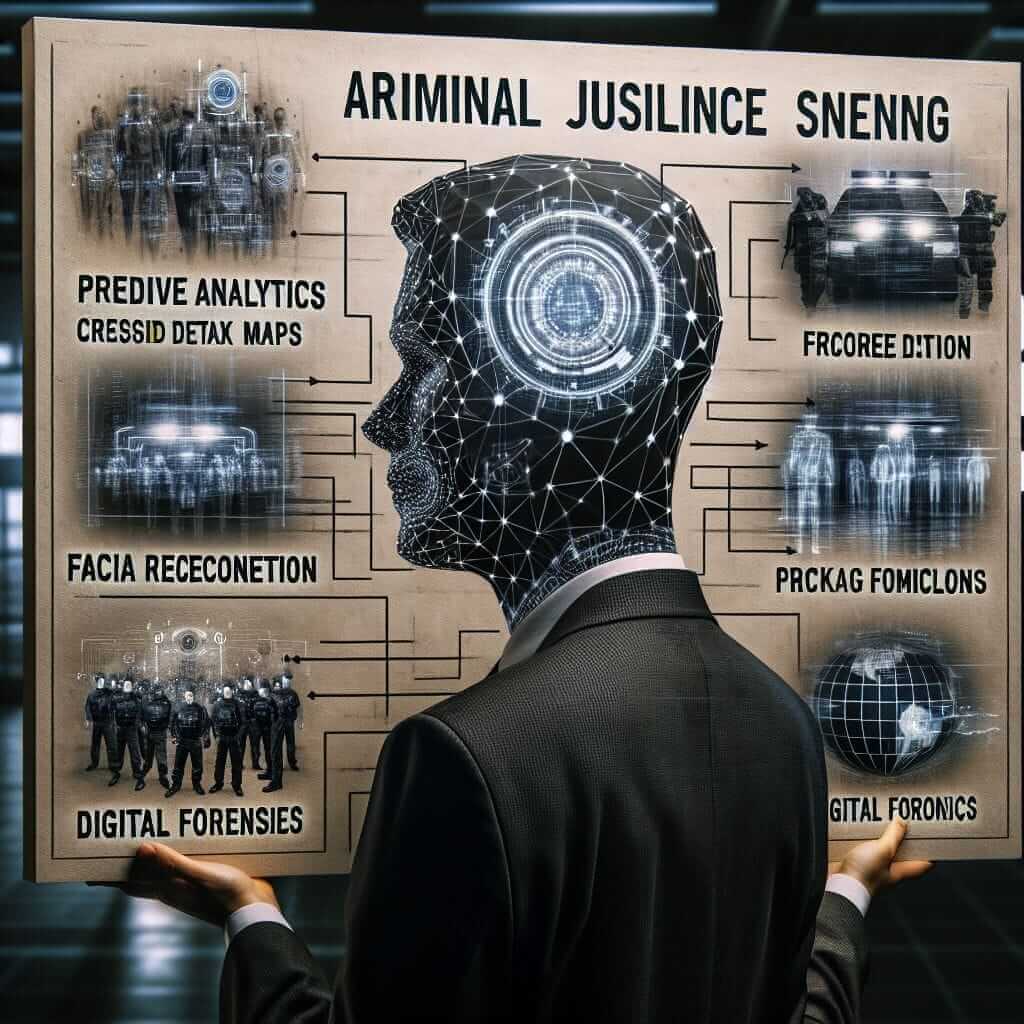The IELTS Reading section is crucial for those aiming for high scores in their IELTS exam. The section consists of 3 passages with a total of 40 questions to be answered within 60 minutes. Topics cover a vast range of subjects, including the evolving use of artificial intelligence (AI).
Artificial intelligence has increasingly become a pertinent topic in recent IELTS exams, particularly focusing on its applications and implications in various fields, such as healthcare, transportation, and criminal justice. Given the current trends and the significance of AI in modern society, it’s likely that this topic will continue to appear in future exams.
Sample IELTS Reading Passage: AI in Criminal Justice
Passage Text (Medium Text)
Artificial Intelligence (AI) is transforming various sectors, and criminal justice is no exception. The incorporation of AI in criminal justice systems around the world aims to enhance efficiency and fairness in numerous ways. One prominent application is predictive policing, where AI algorithms analyze vast datasets to predict potential criminal activities and help law enforcement agencies allocate resources effectively.
Another critical application is in judicial decisions. AI systems are used to assist judges by providing risk assessments based on historical data. For instance, AI can analyze previous cases to suggest whether a suspect is likely to reoffend, which helps in bail and sentencing decisions. However, this has raised concerns over bias in AI algorithms. If the data used is biased, the AI’s recommendations could perpetuate existing inequalities.
Facial recognition technology is also extensively used in law enforcement. AI-powered facial recognition systems can quickly analyze surveillance footage and match it against large databases, aiding in the identification of suspects. Despite its effectiveness, this technology raises privacy issues and concerns about false positives, where innocent individuals might be wrongly identified as suspects.
Digital forensics has also benefitted from AI developments. Advanced AI tools can efficiently analyze digital evidence from various sources such as computers, smartphones, and online communications. This accelerates investigations and helps in solving complex cases. However, the reliability of AI tools in interpreting complex data accurately remains under scrutiny.
While AI brings about significant advancements, there are ethical and legal considerations that must be addressed. Questions surround the transparency of AI decision-making processes, the potential for misuse, and the need for regulatory frameworks to ensure fairness and accountability.

Questions
Multiple Choice
-
What is one application of AI mentioned in the passage?
a) Disease diagnosis
b) Predictive policing
c) Space exploration
d) Climate change research -
How does AI assist judges according to the passage?
a) By making sentencing decisions autonomously
b) By providing historical case analyses
c) By representing defendants
d) By ensuring courtroom security
Identifying Information (True/False/Not Given)
- AI has entirely eliminated biases in judicial decision-making processes.
- Facial recognition technology can sometimes wrongly identify innocent people.
Matching Headings
- Match the correct heading to the paragraphs:
a) Ethical Concerns
b) Digital Forensics
c) Predictive Policing
d) Facial Recognition
Answer Key
Multiple Choice
- b) Predictive policing
- b) By providing historical case analyses
Identifying Information
- False – The passage mentions that AI’s recommendations could perpetuate existing inequalities if the data is biased.
- True – The passage points out that facial recognition technology raises concerns about false positives.
Matching Headings
-
- Predictive Policing: Paragraph 1
- Judicial Decisions: Paragraph 2
- Facial Recognition: Paragraph 3
- Digital Forensics: Paragraph 4
- Ethical Concerns: Paragraph 5
Common Mistakes and Strategies
One common mistake in reading comprehension exercises is failing to distinguish between True, False, and Not Given answers, especially under time constraints. To avoid this, always refer back to the passage and determine if the statement is directly supported, contradicted, or not addressed at all.
For multiple-choice questions, eliminate the obviously incorrect options first to narrow down your choices. Matching headings requires a good grasp of the overall theme of each paragraph, so focus on identifying keywords and main ideas.
Vocabulary
- Incorporation (noun) |ˌinkôrˈpôrāSH(ə)n| – The inclusion or integration of something as part of a whole.
- “The incorporation of AI in criminal justice systems aims to enhance efficiency.”
- Perpetuate (verb) |pərˈpeCHəˌwāt| – To cause something to continue indefinitely.
- “Biased data can perpetuate existing inequalities.”
- Scrutiny (noun) |ˈskro͞otnē| – Critical observation or examination.
- “The reliability of AI tools is under scrutiny.”
Grammar Focus
Pay attention to passive voice constructions often used in formal and academic texts. For instance:
- Passive Voice: “AI algorithms are analyzed to predict potential criminal activities.”
- Structure: [Subject] + [be] + [past participle] + [by-agent (optional)]
Tips for High IELTS Reading Scores
- Practice Regularly: Regular practice helps improve speed and comprehension.
- Expand Vocabulary: A broad vocabulary aids in understanding complex texts.
- Improve Skimming and Scanning: Quickly identify main ideas and key details.
- Understand Question Types: Familiarize yourself with various question formats like True/False/Not Given, multiple-choice, and matching headings.
By integrating these strategies into your preparation, you can enhance your ability to tackle reading passages on contemporary topics like AI in Criminal Justice effectively and score higher in the IELTS Reading section.